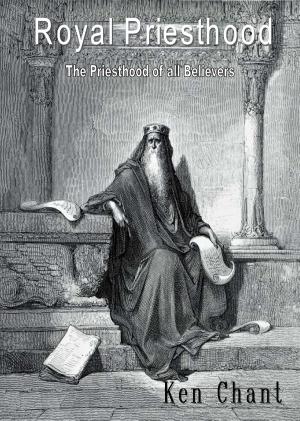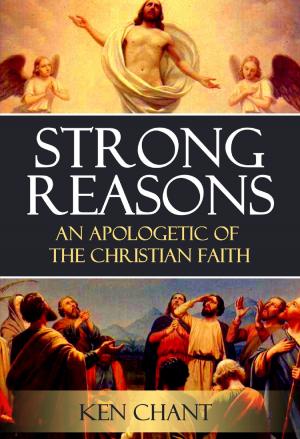Highly Exalted
Nonfiction, Religion & Spirituality, Bible & Bible Studies, Christianity, Christian Life| Author: | Ken Chant | ISBN: | 9781310496851 |
| Publisher: | Vision Colleges | Publication: | March 3, 2015 |
| Imprint: | Smashwords Edition | Language: | English |
| Author: | Ken Chant |
| ISBN: | 9781310496851 |
| Publisher: | Vision Colleges |
| Publication: | March 3, 2015 |
| Imprint: | Smashwords Edition |
| Language: | English |
"The truth of the faith," said St Thomas Aquinas, "is diffused throughout Holy Scripture in various ways, and sometimes obscurely. Hence to bring out the truth of the faith from Holy Scripture requires long study and training. But not everyone who needs to know the truth of the faith can devote themselves to study. So a clear summary is needed of the truth set forth in Holy Scripture, so that everyone has the opportunity to believe it. This summary is not an addition to Holy Scripture; rather, it is drawn from Holy Scripture."
I could say much the same about this book. Its writing cost me far more time and toil than most of my readers could afford, so in this I hope I have done you good service. It also consists in the main of a commentary on a substantial part of the anonymous Letter to the Hebrews. It is not however, a full commentary. You will find nothing here about date of composition, nor place, nor author, nor background material. If you wish to know those things, you will have to consult a regular commentary. I am interested here only in those parts of Hebrews that deal with the high priestly ministry of Christ.
The Saviour's heavenly priesthood is itself a product of the great event that climaxed his passion; that is, his ascension into heaven and his resumption of his seat at the right hand of the Father.
The end result, I trust, will be an answer to the question: where do you find true religion? There are four possible choices:
you can search for it in rites and ceremonies, supposing that by observance of the proper rituals you will gain acceptance with God
you can trust in some good work or personal sacrifice to purchase divine pardon and entrance into heaven
you can repose confidence in holding correct opinions, learning orthodox doctrine and refusing to deviate from it
or you can (as the author of Hebrews would) utterly reject such delusions and place your dependence wholly upon Christ, trusting only in his sacrifice and intercession.
In a word, that means holding to Christ as priest, the sole Mediator between heaven and earth. Trust in Christ leads to a work of grace that certainly occurs in in us, but can never be of us. We are saved as a consequence of his work and of his gift alone, or we cannot be saved at all.
There are three stages in the assumption by Christ of the office of High Priest –
first: he had to be Appointed from among Men, born among us and called out from us as the Incarnate Christ
second: he had to Offer an Eternal Sacrifice, which he did at Calvary, when he became the Crucified Christ
third: he had to commence Continual Intercession for his people, which began after his resurrection, and is the mark of the Ascended Christ.
All three of those stages are discussed in various parts of this book.
"The truth of the faith," said St Thomas Aquinas, "is diffused throughout Holy Scripture in various ways, and sometimes obscurely. Hence to bring out the truth of the faith from Holy Scripture requires long study and training. But not everyone who needs to know the truth of the faith can devote themselves to study. So a clear summary is needed of the truth set forth in Holy Scripture, so that everyone has the opportunity to believe it. This summary is not an addition to Holy Scripture; rather, it is drawn from Holy Scripture."
I could say much the same about this book. Its writing cost me far more time and toil than most of my readers could afford, so in this I hope I have done you good service. It also consists in the main of a commentary on a substantial part of the anonymous Letter to the Hebrews. It is not however, a full commentary. You will find nothing here about date of composition, nor place, nor author, nor background material. If you wish to know those things, you will have to consult a regular commentary. I am interested here only in those parts of Hebrews that deal with the high priestly ministry of Christ.
The Saviour's heavenly priesthood is itself a product of the great event that climaxed his passion; that is, his ascension into heaven and his resumption of his seat at the right hand of the Father.
The end result, I trust, will be an answer to the question: where do you find true religion? There are four possible choices:
you can search for it in rites and ceremonies, supposing that by observance of the proper rituals you will gain acceptance with God
you can trust in some good work or personal sacrifice to purchase divine pardon and entrance into heaven
you can repose confidence in holding correct opinions, learning orthodox doctrine and refusing to deviate from it
or you can (as the author of Hebrews would) utterly reject such delusions and place your dependence wholly upon Christ, trusting only in his sacrifice and intercession.
In a word, that means holding to Christ as priest, the sole Mediator between heaven and earth. Trust in Christ leads to a work of grace that certainly occurs in in us, but can never be of us. We are saved as a consequence of his work and of his gift alone, or we cannot be saved at all.
There are three stages in the assumption by Christ of the office of High Priest –
first: he had to be Appointed from among Men, born among us and called out from us as the Incarnate Christ
second: he had to Offer an Eternal Sacrifice, which he did at Calvary, when he became the Crucified Christ
third: he had to commence Continual Intercession for his people, which began after his resurrection, and is the mark of the Ascended Christ.
All three of those stages are discussed in various parts of this book.















